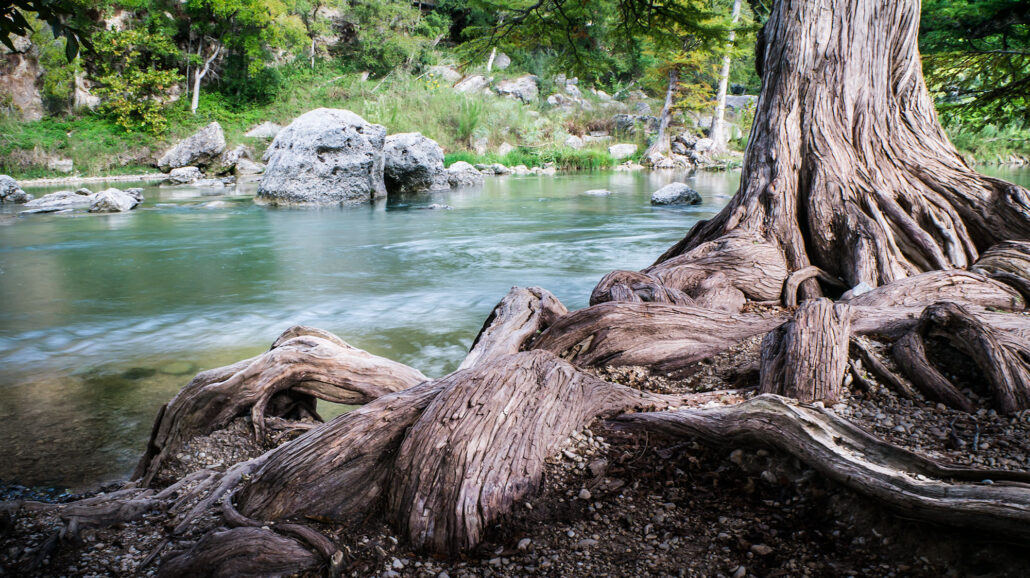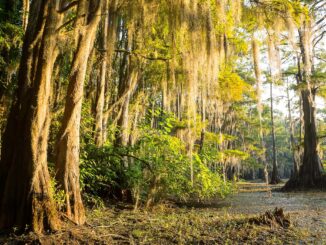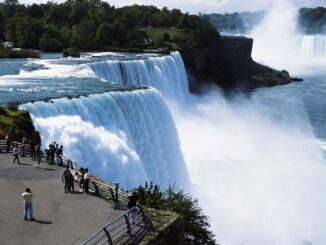
In two weeks, the citizens of Texas will head to the polls to determine the fate of a $1 billion state park expansion plan.
Proposition 14 is up for a vote on Texas ballots in a forthcoming November 7 election. If it passes, the referendum will amend the state constitution to create the Centennial Parks Conservation Fund.
The language on the ballot will ask Texans to vote “yes” or “no” on “the constitutional amendment providing for the creation of the Centennial Parks Conservation Fund to be used for the creation and improvement of state parks.”
A vote in favor of the amendment will allow the Texas Parks and Wildlife Department to tap $1 billion that would be set aside in the new fund for purchasing new land. TPWD could then use the money to transform newly acquired lands into new state parks for the public to enjoy. The parks authority could also use the funds to improve or expand existing state parks.
“The Centennial Parks Conservation Fund would not create a new tax for Texans and, if passed, would be the largest investment in parks in our state’s history,” TPWD said in a release.
The money has already been set aside by the legislature—all that’s left is for the voters to grant TPWD access to it.
Few are voicing opposition to creating the fund. Support for Proposition 14 is strong, especially among the state’s environmental community.
The Lone Star Chapter of the Sierra Club is urging voters to back the plan. The Club argues that state park development and TPWD funding haven’t come anywhere close to keeping up with Texas’ rapid population growth.
“Passage of Proposition 14 will be a critical step to secure future funding for new state parks and preserving more of the state’s most important remaining natural areas,” the Sierra Club says.
Luke Metzger, Executive Director of Environment Texas, says green groups have been campaigning for the fund for the better part of three years. Environment Texas played a leading role in the campaign through its Million Acre Parks Project launched in January 2020.
Metzger said he expects state conservationists to move quickly once the measure passes and the state constitution is amended. So far, Proposition 14 enjoys strong public support among voters in Texas, one of the fastest-growing states in population.
“TPWD will start bringing potential land purchases to the Legislative Budget Board for approval to tap the Centennial Fund for cash,” Metzger told Public Parks. “I’m hearing that the agency wants to show legislators they aren’t going to just sit on this money and plans to move quickly to make some purchases.”
State parks are a popular draw in Texas—more than 95 percent of the state is privately held, so publicly accessible natural areas are highly valued by the state’s residents. The only two national parks found in the state are located far from the population centers of the Texas Triangle (the corridor of Dallas-Fort Worth, Houston, San Antonio, and Austin).
The newest forthcoming Texas state park, Powderhorn Ranch, was purchased using funds garnered from the legal settlement over the 2010 Deepwater Horizon offshore drilling rig explosion and subsequent oil leak, the largest in US history. Environmental groups led by the Nature Conservancy purchased the land at Powderhorn Ranch and held it in trust before turning it over to TPWD’s control.
Texas is still at risk of losing one of its cherished state parks, though the risk is subsiding.
Fairfield Lake State Park is on privately owned land that TPWD was leasing before the lease ran out. The owner wants to develop the entire property with housing and a golf course, but the state sued to stop those development plans from moving forward. TPWD is now moving to have the land condemned, which would then allow the state to seize it and keep Fairfield Lake State Park open to the public.
Metzger speculates that the fight over Fairfield Lake convinced many Texas lawmakers of the need to create the Centennial Parks Conservation Fund.
“The silver lining of the Fairfield Lake saga is that the issue likely helped get the Legislature to vote to put Prop 14 on the ballot,” he said. “Lawmakers saw how much the public was upset by the potential loss and it created a sense of urgency that helped spur them to act.”
Metzger said a constitutional amendment is necessary to bypass spending caps and to prevent lawmakers from raiding the fund for other purposes.
Polls suggest that the proposed amendment will easily pass next month.
Public polling results on the forthcoming November 7 Texas ballot were released Monday by the University of Houston and Texas Southern University. The UH-TSU poll shows that 67 percent of respondents said they intend to vote in favor of Proposition 14. Only 15 percent said they will vote “no” while another 18 percent of potential voters say they are undecided on the measure.
TPWD says it currently manages 89 state parks. The agency is celebrating its 100th anniversary of the Texas state park system this year.
If Proposition 14 fails, TPWD says it will strive to expand the state park system through “a mix of conservation funds, stakeholder partnerships, and specifically authorized state and federal appropriations.”
©2025 Public Parks



